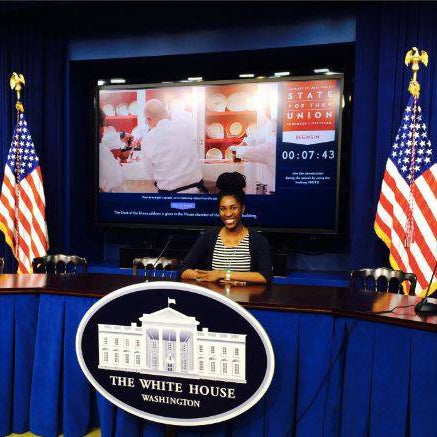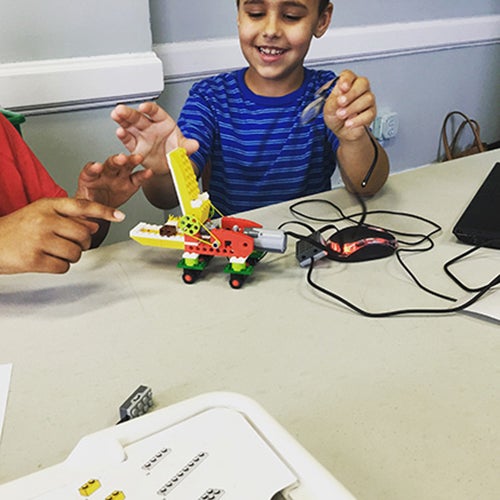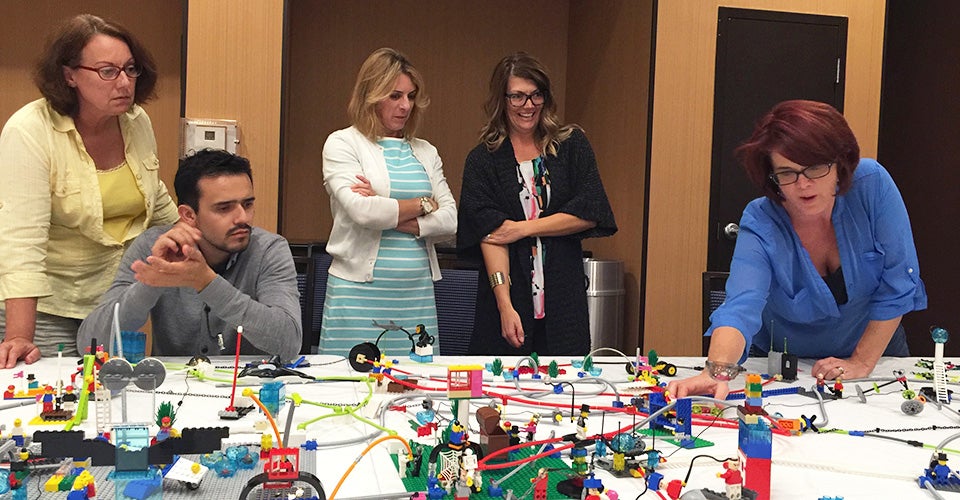SKILLS TO SUCCEED
English alumni put degrees to good use
Traditional liberal arts degrees are sometimes overlooked with the current focus on science, technology, engineering and math fields, but students continue to find that degrees like English help build important skills that are sought after by employers.
“Four of the top five traits employers are looking for are teamwork, clear writing, problem-solving aptitude and strong oral communications,” said John Stowe, career development counselor for East Carolina University’s Thomas Harriot College of Arts and Sciences. “These are skills acquired in a traditional liberal-arts education. Companies are hiring humanities and social science degree holders for long-term employment due to the skill set they have developed through their liberal arts programs.”
It often makes more sense, Stowe said, to hire employees who can write well and then teach them the specific skills they need, rather than hiring specialists in the hopes that they can become strong writers.
ECU English department chair Marianne Montgomery said the department has seen its students go to work for law firms, pharmaceutical companies, data and software companies, and nonprofits.
Job titles for recent graduates include community outreach coordinator for a nonprofit, content marketing writer, multimedia designer, social media coordinator and research analyst, as well as more traditional positions such as fiction writer, technical writer and journalist.
“People call writing and critical thinking skills ‘soft skills,’ but they’re really the hardest things to learn and are highly valued by employers in a wide range of fields,” said Montgomery.
As English majors, she said, students not only learn those skills, but also learn how to talk about them in resumes, cover letters and graduate school applications.
Bridget Todd ’07 said the opportunity to try out widely varied projects and activities at ECU helped prepare for the twists and turns of her career. She wrote for the East Carolinian and Expressions, ECU’s minority representative magazine. She also interned with the North Carolina Literary Review, submitted to Rebel Magazine and was a DJ for WZMB.

English alumna Bridget Todd is a political outreach editor for Medium, a blogging platform. (Contributed photo)
Since graduating, Todd has taught classes at Howard University and worked for a political consulting firm and for MSNBC. Today she is a political outreach editor at Medium, a blogging platform for which she writes about politics and works with lawmakers and activists to “amplify their own writing on our platform,” she said.
Though her career is different from the life in academia that she originally envisioned, she is happy to be making her way as a writer in her own way.
“ECU offered a lot of outlets for budding creatives,” Todd said. “Juggling different things has been a hallmark of my career success, and I think I learned that at ECU. Even with my current full-time job, I write on the side, talk about politics on TV shows, speak at colleges and universities, and volunteer for local causes.”
Automotive writer and Pulitzer Prize winner Dan Neil ’82 also credits the diverse field of studies at ECU for helping prepare him for his career.
“The single biggest event that made me become a writer about design and automobiles was an art history class at East Carolina,” he said during a presentation in November for ECU’s College of Business. “This job spans … culture, history, business and corporate structure. The universe of automobiles is vast.”
Neil, now an automobile writer for the Wall Street Journal, focuses his writing on energy efficiency, electric vehicles and the future of the automobile industry, as well as its impact on society as a whole.
“Occasionally I take time out to drive fast cars,” he said. “I have the greatest job in the world, driving new cars and writing about it. … After 20 years, sometimes I still have to pinch myself.”
Neil encouraged students to take advantage of the opportunity to expand their horizons by taking classes outside of their major. While he was an English major at ECU, he said one of the classes that had the most impact on him was a sculpture class.
“Always take 18 hours or more,” he added. “You don’t have time to do anything else so it goes by fast.”
Another English alumna using her degree to make a difference is Megan Oteri, who earned her master’s in English in 2012. She had been teaching language arts for 15 years and wanted to study creative writing to become a better teacher and develop her writing skills. Today she is helping children learn using Legos through her own company, Brick Scholars.

A student admires his successful Lego build using English alumna Megan Oteri’s Brick Scholars concepts. (Contributed photo)
“We believe all children can learn,” she said. “Creativity and fun are the focus; learning is the outcome.”
Oteri said ECU prepared her to process and synthesize complex ideas and concepts, as well as formulate and articulate her opinion, ideas and thoughts. Communicating effectively is essential to her work with schools, businesses and students, from public relations and marketing to working with students and their parents.
“Ideas are great, but they can remain stagnant without the fuel of the written word,” she said. “Ideas need to be expressed, developed and polished, and this happens through written and verbal communication. It is an essential skill to be successful.”
Oteri said an English degree provides an advantage in any profession because everything is based in language.
“[Language] is our tool as humans,” she said. “English degree holders are not only fluent using that tool, they know how to make the tool do tricks. Critical thinking, processing and synthesizing complex ideas and concepts are essential skills in any career.”
Todd encouraged prospective English majors to keep an open mind about what success looks like.
“For a long time I thought being a ‘successful’ English graduate looked like writing for a newspaper or being a full professor at a university,” she said. “But success can be having your own blog or working at a nonprofit or (if you’re me) writing about politics for a Silicon Valley tech company. … English majors are everywhere, from Sally Ride to Mitt Romney. Anyone who says an English degree will limit you is wrong — an English degree can take you wherever you want to go.”

Megan Oteri, right, who earned her master’s degree in English in 2012, has started a company called Brick Scholars, which uses Legos as an educational tool. Here she evaluates the connections of legos with fellow educators. (Contributed photo)